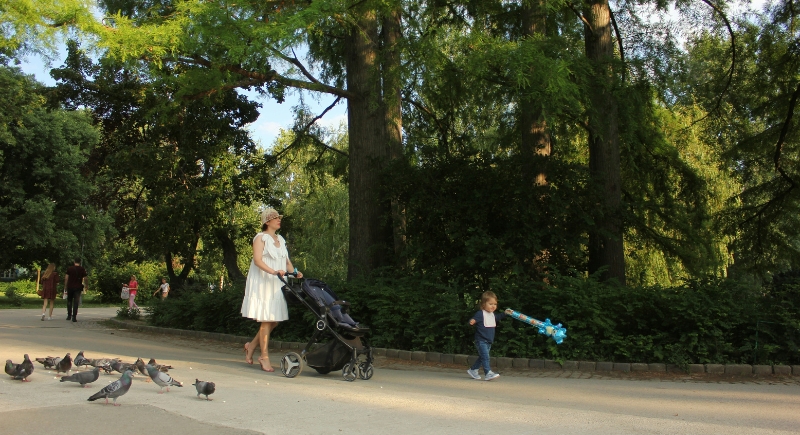What It’s Really Like to Earn Six Figures as a Nanny to the Super-Wealthy
Some jobs show you corners of life you would never see otherwise. On the Upper East Side of Manhattan, behind tall doors and private elevators, there is a world of nannies running the day-to-day lives of children whose parents collect cars and art like it’s routine. It is a job that pays far more than most expect, but it also demands work that stretches beyond what many would ever agree to in a traditional workplace. Stephanie Kiser knows exactly what this is about.
A Career By Chance

Image via Unsplash/Dušan Tizić
Everyone has a dream. Stephanie Kiser moved to New York City after finishing college with plans to write for film and television. But bills arrived faster than her dream job, and rent in Manhattan couldn’t wait for her big break. So, she turned to nannying, first as a stopgap, then as a career.
Her first role paid around 20 dollars an hour, already better than most production assistant gigs. This opened doors to families who went through agencies, and each step brought more responsibility and a bigger paycheck. By the time she reached her final year, she was earning around $110,000, often working 55 to 75 hours a week.
Front Row Seat to Privilege
Stephanie began spending her days in homes that felt like private resorts. Porsches and Mercedes were idling in driveways. Some families had on‑site staff comprising a chef, a sous chef, a butler, and a rotation of housekeepers ironing and folding all day. She escorted children to tutors who charged $500 per session and prepared them for day camps costing $13,000.
In closets, she found rows of Oscar de la Renta dresses in toddler sizes, some priced at more than $400 each. The children wore them to school, where classmates’ parents included actors, investors, and CEOs.
The Reality Behind a Six‑Figure Pay

Image via FreePik
A nanny in this setting works without an HR department to whom one can turn. So, contracts are vital here because a family sets every condition. Your hours, responsibilities, and expectations could shift at any time. Some families provide health benefits and paid holidays, but others offer only cash and demand complete availability.
There were moments when Stephanie found herself doing jobs far beyond childcare. She scrubbed linen underwear by hand because they were too expensive to toss, wiped down Lego blocks individually, and kept careful track of ointment jars so they always looked unused.
She remembers the weekend a billionaire invited her to the Hamptons to care for his young son. When it came time to head to the family’s yacht, the staff drove ahead in golf carts and told her to run behind them down a long path to the dock. At another job, she watched as a child lashed out by soiling his pants on purpose.
Class Shapes the Smallest Details
The more time she spent in these homes, the more Stephanie noticed the gap between her childhood and the childhoods she managed. She grew up in Rhode Island in a family that scraped by, with parents who stretched groceries and answered calls from debt collectors.
She compared that to the kids she cared for, who attended classes in buildings that looked like art galleries and spent their afternoons in parks, followed by gourmet snacks. It made her think about how much success comes from opportunity and how some children begin life with access to resources others may never have.
The job also revealed how people were treated differently depending on their background. Agencies often sought young, white, college‑educated nannies and offered them better pay than older nannies or those from other countries, even when those women had decades of experience. In playrooms, some mothers only spoke to Stephanie and ignored the other nannies completely. A friend of hers once shared how a family hosting a barbecue refused to let the nannies eat the same steaks served to guests.
Leaving The Work Behind

Image via Unsplash/behrouz sasani
For Stephanie, nannying became more than a paycheck. Spending that much time with a child creates deep connections, and leaving a job often felt like leaving family. She recalls being sick in bed after her last day with one family and missing the kids almost immediately. Those relationships softened some of the more difficult parts of the work, but over time, she knew she wanted to build a different kind of career.
She eventually became a personal assistant and worked her way up to a senior executive assistant role in an ad‑tech company. It took time for her salary to catch up to what she made as a nanny, but she now has health benefits, a structured schedule, and a sense of career growth that nannying rarely provides.
An Honest Look at a Hidden World
Stephanie’s memoir, “Wanted: Toddler’s Personal Assistant,” details those years in a way that combines humor with reality. Her stories move between moments of privilege—gourmet sandwiches and chauffeur rides—to moments that felt surreal, like running behind a golf cart on a billionaire’s property.
It also highlights the social dynamics hidden in plain sight: the different treatment of nannies based on race and education, the unspoken rules of wealth, and the pressure to meet expectations that never seemed to end.